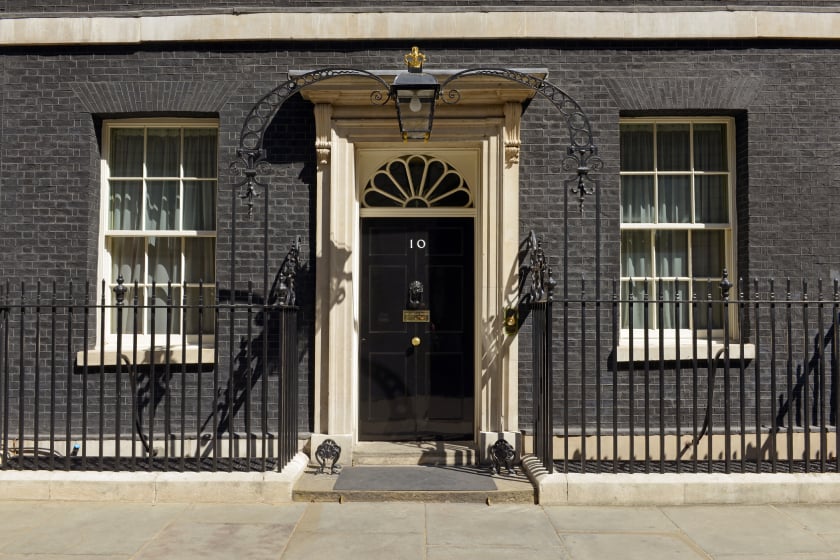£100 million money laundering conviction: Lessons for accountants
In 2022, Emirati national Abdulla Alfalasi was jailed for nine years, following a conviction for leading the biggest...
READ MORE
Political donations are in the spotlight as we enter an era of ‘superdonors’, some of whom are making headlines for the wrong reasons.

News that Anthony Bamford, a regular and influential donor to the Conservative party, is under investigation by HMRC over his tax affairs, has highlighted questions about governance around the political donations process.
Over the past 20 years, Lord Bamford has earned the title of ‘superdonor’, lavishing more than £10 million upon the Conservative Party. With the tax investigation reported to have been running over several years, questions are being asked about whether the party should have accepted his donations at all.
If those donations had offered some sort of immunity from investigation, which there is no evidence of, that would be known as a ‘quid pro quo motive’ of political donation, says Professor Mirko Draca, from the Department of Economics at the University of Warwick.
“I give something to you, you give something back to me,” Draca says, adding that it is very hard to establish evidence of.
Draca and his colleagues have spent several years researching patterns of political donations, in the UK and elsewhere.
Their late 2022 research report, Financing UK Democracy: A Stocktake of 20 Years of Political Donations Disclosure, revealed astounding facts about the growth of political donations.
Since 2001, political donations in the UK have risen by almost 250%, the study says.
Total political donations reached more than £100 million annually, for the first time, in 2019.
Interestingly, around 60% of that amount came from private individuals. These high-wealth individuals were responsible for most of the massive growth in donations over the past couple of decades.
While an expectation of immunity from investigation or prosecution is probably unusual, more likely is a hope for some form of influence over policies likely to affect a donor’s business, lifestyle or investments. Donors may even hold a simple goal of helping to gain power for a politician or party with policies and approaches that benefit the donor – so that those policies may become reality.
Many businesses experiment with the idea of making a political donation and, when that donation appears to provide little or no return, do not donate again.
“They don’t think it’s a productive investment, in terms of time spent fundraising and the money they donated,” Draca says. “They’ve got some sort of interest in the political process because their business is going to be affected by government policy. They do a fundraiser. They donate. Then they never do it again.”
That’s likely because political donations and any influence they return demand the playing of a long game. They involve attending political meetings, investing in representation, doing background research and having regular conversations with politicians.
“If you’ve ever been to a political meeting, you’ll know they’re a bit boring, unless you think meeting politicians is interesting,” Draca says, “So a lot of businesses withdraw pretty quickly.”
But other businesses and wealthy individuals still choose to play the long game. More than ever, in fact, and particularly in favour of the Conservative Party. In 2019, the Conservative Party’s war chest was £27 million heavier than Labour’s.
Superdonors, defined as individuals who donate more than £100,000 annually, have seen their own slice of the political donation pie rise from 31% in 2017 to 45% in 2019. These donations rise and fall according to the power, popularity and performance of leaders – during Jeremy Corbyn’s time as Labour leader, private donations to his party fell sharply.
“On the left, with the Labour Party, it tends to be unions that are the superdonors,” Draca says. “On the right it's mainly individual, private interests who are super donors.”
Money does follow power, Draca says, but the vast majority of donors are partisan. The amount of “footloose money”, or donor funds that switch between the two major parties, is relatively small.
“Superdonors are partisan because they’re driven by what we call affective motives and, more colloquially, ideological motives. So, they want to get some representation for their business interests, but they also want to get representation for their ideological interests.”
Why are the Tories running away with the bulk of political donations? It’s because of simple socioeconomics, as well as purpose, Draca says.
“The Labour support base is more diffuse and has less disposable income,” he says. “Businesses tend to have more money at hand, plus they’ve got interests that are more specific to the policy process, such as planning approvals and regulatory changes, etc.”
There is no perfect political donation model as yet, Draca says. Most important is transparency, which has been constantly improving in the UK.
Plus, it’s important to remember that the concept of political donations is not necessarily a bad one.
“Part of it is about freedom of expression and democracy. We all want to have some capacity to express our interest in democracy. So, having some amount of money in politics is part of the representation of political views across society,” Draca says.
“What we’re worried about is that certain people have more opportunity to express their views than others through the channel of money. One dollar should not equal one vote.”